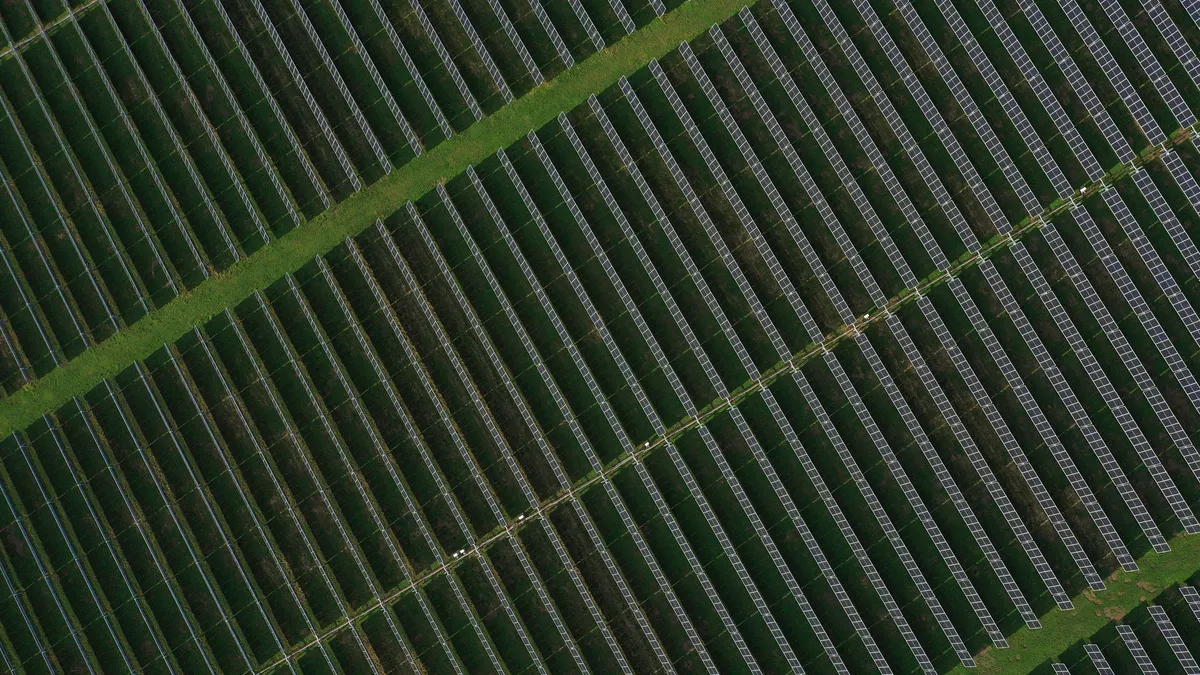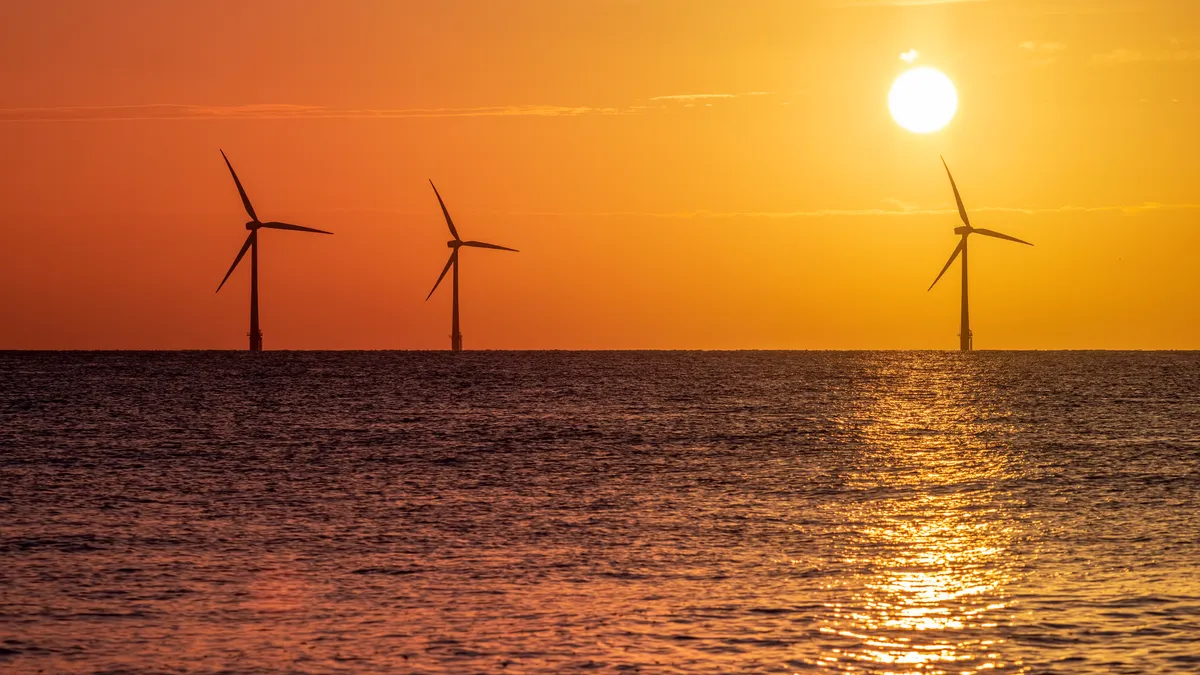Prices for renewable energy are coming down, and the number of renewable corporate power purchases is going up.
Those trends should be working in concert for the benefit of corporate power purchasers, but it is hard to know if corporate buyers are getting the full benefit of the low prices because of a lack of visibility into the pricing of corporate power purchase agreements (PPAs).
Regulated utilities do not divulge all the details of PPAs with private companies, but they have to file rates that give an indication of pricing levels in broad terms. Corporations are under no such obligations and usually do not divulge pricing for competitive reasons.
"For a developer to get the price down takes work; it is not just taking less profit."

Jon Summerville
Project Manager, Burns & McDonnell
Often, corporations looking for renewable PPAs will work in a one-to-one relationship with the renewable energy developer. That puts pricing on a cost-plus basis, Jon Summerville, project manager at construction and consulting firm Burns & McDonnell, told Utility Dive. Those contracts are easier to negotiate than a competitive process, but they usually yield a higher price, he said.
One firm that's working to bring lower prices to corporate PPAs by increasing contract transparency through their web-based marketplace is LevelTen, a wholesale energy consulting group.
Cost-plus basis pricing
Using cost-plus contracts could mean "a lot of money is being left on the table," Summerville said.
Summerville cited a competitive solicitation Burns & McDonnell recently completed for Tri-County Electric Cooperative (TCEC) of Oklahoma that resulted in a very competitive $/MWh price and what he said "is probably the lowest current contracted PPA $/MWh price for renewable energy in the country."
Enel Green Power North America has contracted to sell 84 MW of the output of its 300 MW Diamond Vista wind farm in Kansas to TCEC, 100 MW to City Utilities of Springfield and 100 MW to the large manufacturer Kohler.
Summerville declined to reveal the exact number, but said the TCEC wind PPA price was "much cheaper" than the $23.76/MWh solar PPA signed by NV Energy in Nevada in June. NV Energy had filed for approval of a 300 MW solar PPA for 25 years at a rate that beat the lowest-cost solar contract in the nation.
Prices for renewable PPAs have been declining in general.
In January, Xcel Energy received a median bid price of $21/MWh for wind-plus-storage projects and $36/MWh for solar-plus-storage projects, beating the $45/MWh price for a solar-plus-storage project hit last year in a PPA between Tucson Electric Power and NextEra Energy.
"For a developer to get the price down takes work; it is not just taking less profit," Summerville said. The key, he said, is a competitive procurement process followed by several rounds of negotiations. "Often, it is the very last step that gets the results," Summerville said.
That was the case with the TCEC deal. One final phone call dropped the price by $1.10/MWh, Summerville said. In the end, the final price was $4.45/MWh less than the first price received in the competitive solicitation, which translated into $1.6 million in annual savings from the original price over the life of the 20 year contract.
Low prices stir demand
Declining prices for renewable energy are enabling "quite a bit of demand in all parts of the country, not only from utilities, but from corporate and industrial purchasers, as well," John Hensley, senior director of industry data and analysis at the American Wind Energy Association (AWEA), told Utility Dive.
"The first quarter of this year was the most active we've seen since we started tracking corporate PPAs in 2013," comprising about one-third of all PPAs signed, Hensley said.
AWEA expects between 8 GW and 13 GW of wind power capacity will be deployed on an annual basis between now and 2020.
The rush of corporate PPAs has prompted AWEA to release a Corporate Buyers Guide to Wind Energy. "Every C&I customer has a unique business situation and set of needs and interests that inform how they make a purchase," Hannah Hunt, deputy director of electricity policy and demand at AWEA, told Utility Dive via email. The guide will "help new buyers explore the options available to custom tailor their purchase of wind energy from a specific wind project," she said.
As the market for corporate PPAs grows, it is also evolving, giving corporations more tools and resources that provide visibility into renewable energy pricing. One of those tools is a new report on corporate PPA prices.
"There was no way for buyers to know the value of the price they were getting."

Bryce Smith
CEO, founder of LevelTen
The first edition of the quarterly report, released in June by LevelTen Energy, found that PPA prices in the company's marketplace dropped consistently across all ISOs over the past three months. Median prices were down $1.5/MWh across all projects. The public report aggregates corporate PPA data and presents it by technology and region.
The steepest declines, the report found, were in the Electric Reliability Council of Texas region where median prices were down $3.1/MWh over the last three months. The smallest declines were in the Southwest Power Pool, which saw a drop of $0.55/MWh.
The largest price change for a single region/technology was in ERCOT for wind PPAs, which saw median prices fall by $5.5/MWh to $18/MWh. The second largest single decline over the past three months was for solar projects in the Midcontinent ISO, which saw a $4.9/MWh drop in median prices to $34.1/MWh.
Some factors driving these price declines include lower equipment costs and high demand.
The report's prices are self reported by hundreds of developers who log on to LevelTen's web-based marketplace, spokesman Ryan Luckin told Utility Dive.
PPA Pricing Index Change between Q1 and Q2 2018
| Technology | Largest Change in median PPA prices | Region |
|---|---|---|
| Wind | -$5.5/MWh | ERCOT |
| Solar | -$4.9/MWh | MISO |
| Even Blend | -$3.1/MWh | ERCOT |
SOURCE: LevelTen
LevelTen created its marketplace for corporate buyers to bring transparency to the market. "There was no way for buyers to know the value of the price they were getting," Bryce Smith, CEO and founder of the company, told Utility Dive. In the past, getting PPA pricing was an onerous process, "our online marketplace automates that," he said.
It's important to remember, however, that "price doesn't equal value," Smith said. The details of a project and of a PPA matter. Location often determines the quality of the renewable resource. There are also a lot of variations in the details of PPAs.
In addition, corporate PPAs have a different structure than utility PPAs. "It is not apples to apples," Erin Decker, director of clean technology for Schneider Electric, told Utility Dive. Corporates usually pay a slight premium for a slightly less risky PPA structure, she said.
Most corporate PPAs, in fact, are not true PPAs but are synthetic or virtual. The customer does not take direct delivery of the electric energy. Instead, the contract is settled financially. Many of the PPAs are structured as contracts for the difference between the wholesale power price and the price in the PPA, whether it is fixed or floating.
"The corporate market is larger than it has ever been."

Erin Decker
Director of clean technology, Schneider Electric
Corporate PPAs also are often priced based on hub prices in an ISO or RTO, even though the developer is getting the busbar price — the price where the energy enters the grid. Hub prices trade at a premium to busbar prices. Basing the PPA on hub prices removes transmission and congestion risk for the corporate buyer, Decker said.
"We are doing hundreds of deals, so we have a view about where the market should be," Decker said. Schneider guides corporations through the solicitation process. Just about all of corporate PPAs run through some sort of solicitation, she said. The company also brings buyers and sellers together, using their database of developers.
And with the legislatively mandated phaseout of federal incentives such as the production tax credit and the investment tax credit, the renewable market is poised to grow even faster. "The corporate market is larger than it has ever been," Decker said.





















